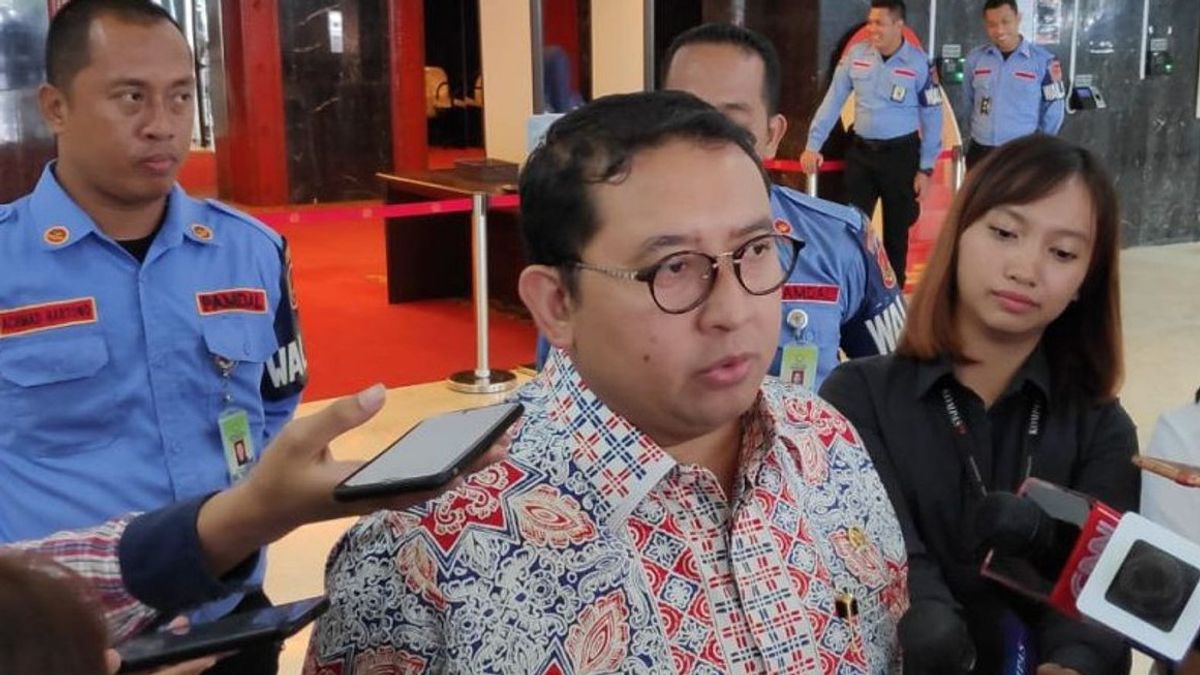JAKARTA - Deputy Chairperson of the Gerindra Party, Fadli Zon, assessed that there was a misunderstanding in responding to the draft Presidential Regulation regarding the fulfillment of Defense and Security Equipment Tools (Alpalhankam) for 2020-2044.
The reason is that the strategic plan to purchase defense equipment, which requires a budget of 124,995,000 dollars, or the equivalent of Rp. 1,788,228,482,251,470 (quadrillion) has become a matter of debate lately. This is because it is considered too big and 'ambitious' in the midst of the crisis that hit the country.
"I see, there are three sources of misunderstanding. First, people only see the total amount of the budget, which reaches Rp. 1,760 trillion, but they don't pay attention to the scheme," said Fadli, Monday, June 7.
"Secondly, people forget that this is a strategic project for a period of twenty-five years. And thirdly, people forget that all of this is just a draft of the Government's plan," he continued.
Apart from these three things, the chairman of the DPR's Inter-Parliamentary Cooperation Agency (BKSAP) considered that many people also forget that Indonesia is currently in the final stages of the Minimum Essential Force program, or MEF (Minimum Essential Force), which started in 2009. .
To note, the MEF is a program designed to modernize the defense force. The MEF is implemented in three stages, namely Phase I (2009-2014), Phase II (2014-2019), and Phase III (2019-2024).
Fadli explained, in each stage of the MEF, the Government budgeted approximately Rp. 150 trillion for defense equipment spending. So, each year the budget is approximately Rp. 30 trillion.
“Well, this program will end in 2024. So, it is very reasonable if the Government then drafts a new strategic program to continue the MEF. That is the background for the emergence of the draft Presidential Regulation on Alpahankam,” explained Fadli.
The former deputy chairman of the DPR explained that in its implementation the MEF program did not run smoothly as planned. Based on data from the Ministry of Defense, in October 2020 the Indonesian Army only had 77 percent of the minimum essential force (MEF), the Navy 67.57 percent, and the Indonesian Air Force 45.19 percent.
So, according to the current budgeting model, he said, the MEF might not be able to reach 100 percent in 2024. Therefore, according to Fadli, new roads, plans and breakthroughs are needed.
"I see the Ministry of Defense's plan to unify the 25-year defense budget allocation to fulfill the Alpahankam, is a breakthrough and can be the answer to accelerate the modernization of the TNI's alpahankam," said Fadli.
3 Considerations Supporting the Presidential Decree on Defense and Security
Fadli revealed, there are at least 3 considerations why the plan should be supported. First, this breakthrough will answer the acceleration of the modernization of the ALphankam.
"The condition of the defense security guards is indeed inadequate, both in terms of numbers and in terms of age. About 70 percent of our security guards are old," said the West Java legislator.
Fadli also reminded, the tragedy of the sinking of KRI Nanggala-402. One of the contributing factors, according to him, is due to old age.
"So far, a lot of the TNI's budget has been used to maintain Alpahankam which is no longer suitable for use," he said.
Second, in terms of budget. Fadli assessed that modernizing by unifying the 25-year defense budget allocation could increase the procurement capacity of the defense and security guard in a more comprehensive manner.
"In addition to immediately increasing Indonesia's bargaining position, I think this method is also more efficient than if the procurement is carried out separately and partially," he said.
He further explained, if measured from GDP (Gross Domestic Product) in 2020 of Rp. 15,434.2 trillion, the budget allocated by the government for defense equipment for 25 years was actually only in the range of 0.6-0.7 percent annually.
In fact, he continued, when referring to the MEF document, ideally since MEF II, between 2014 and 2019, our defense budget allocation has reached 1.5 percent of GDP.
"So, don't just look at the Rp1,760 trillion log, but also look at the percentage of our GDP for the next 25 years," said Fadli.
Third, this plan is to continue the MEF strategy which is currently in phase 3.
As the Minister of Defense, said Fadli, Prabowo Subinto must face three challenges at the same time related to the MEF.
First of all, the Minister of Defense must complete the MEF. Second, they have to face the reality of constrained defense budgets due to the pandemic. Third, must be able to offer a new strategic plan to continue the MEF.
"So, like it or not, the Ministry of Defense must be able to make a breakthrough. The draft Presidential Regulation on Alpahankam is the result," he said.
In the past year, Fadli saw that the Ministry of Defense's efforts to accelerate the MEF target were quite serious and comprehensive. For example, re-evaluating defense cooperation contracts which are considered inefficient, opening wide cooperation with various countries so that they do not depend on one country alone, and lastly, they also do not forget to strengthen the national defense industry.
"So, the steps drawn up by the Ministry of Defense are very comprehensive. We really have to make an important breakthrough so that we can immediately have a strong national defense system. Apart from the things that have been mentioned above, I agree that this big plan certainly still has to finalized and refined again by involving the parliament,” concluded Fadli Zon.
The English, Chinese, Japanese, Arabic, and French versions are automatically generated by the AI. So there may still be inaccuracies in translating, please always see Indonesian as our main language. (system supported by DigitalSiber.id)













